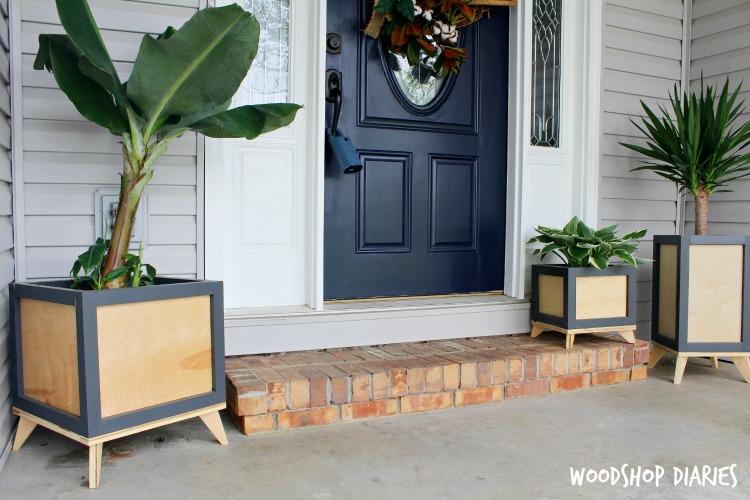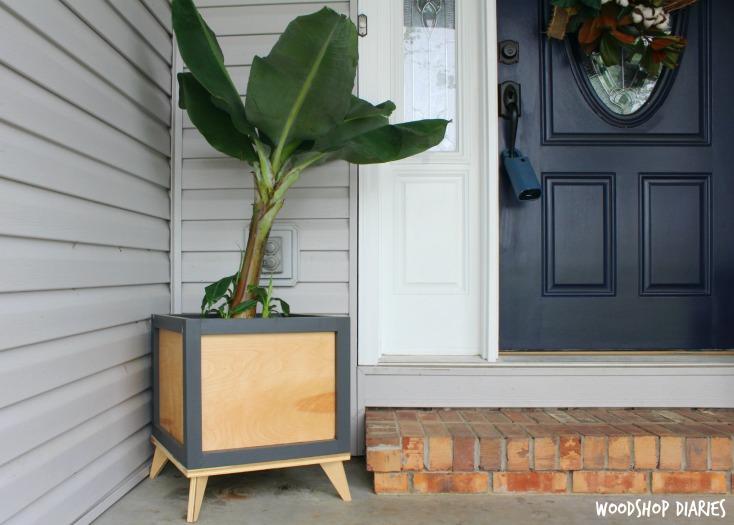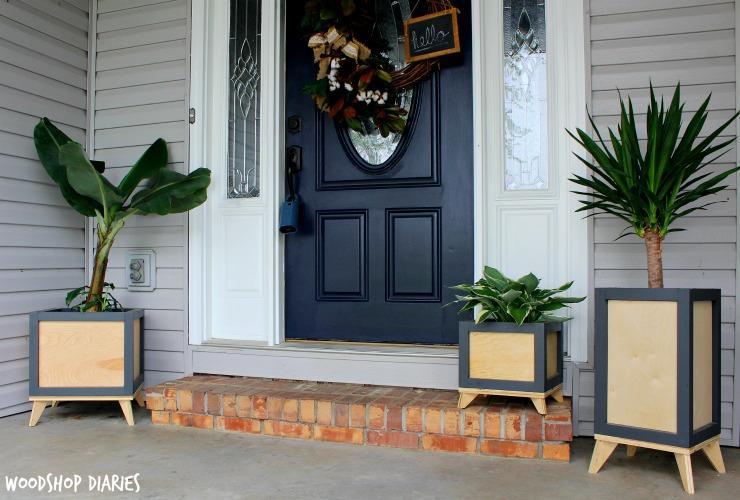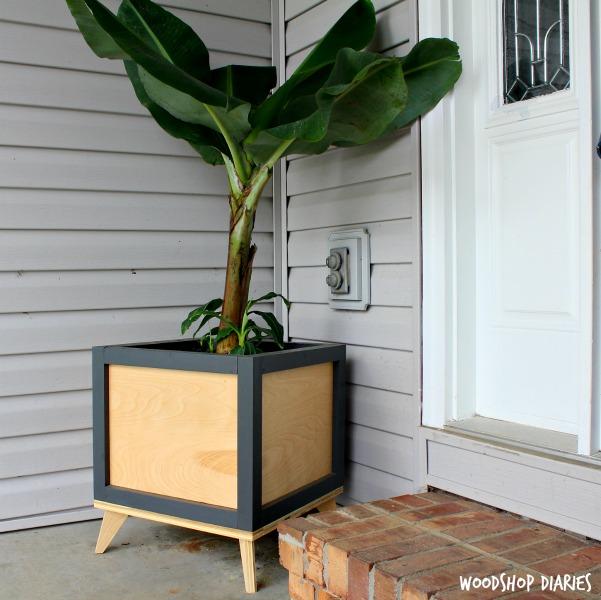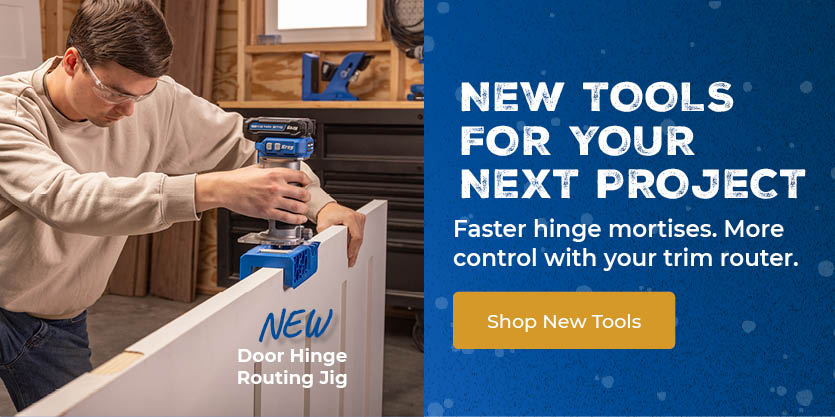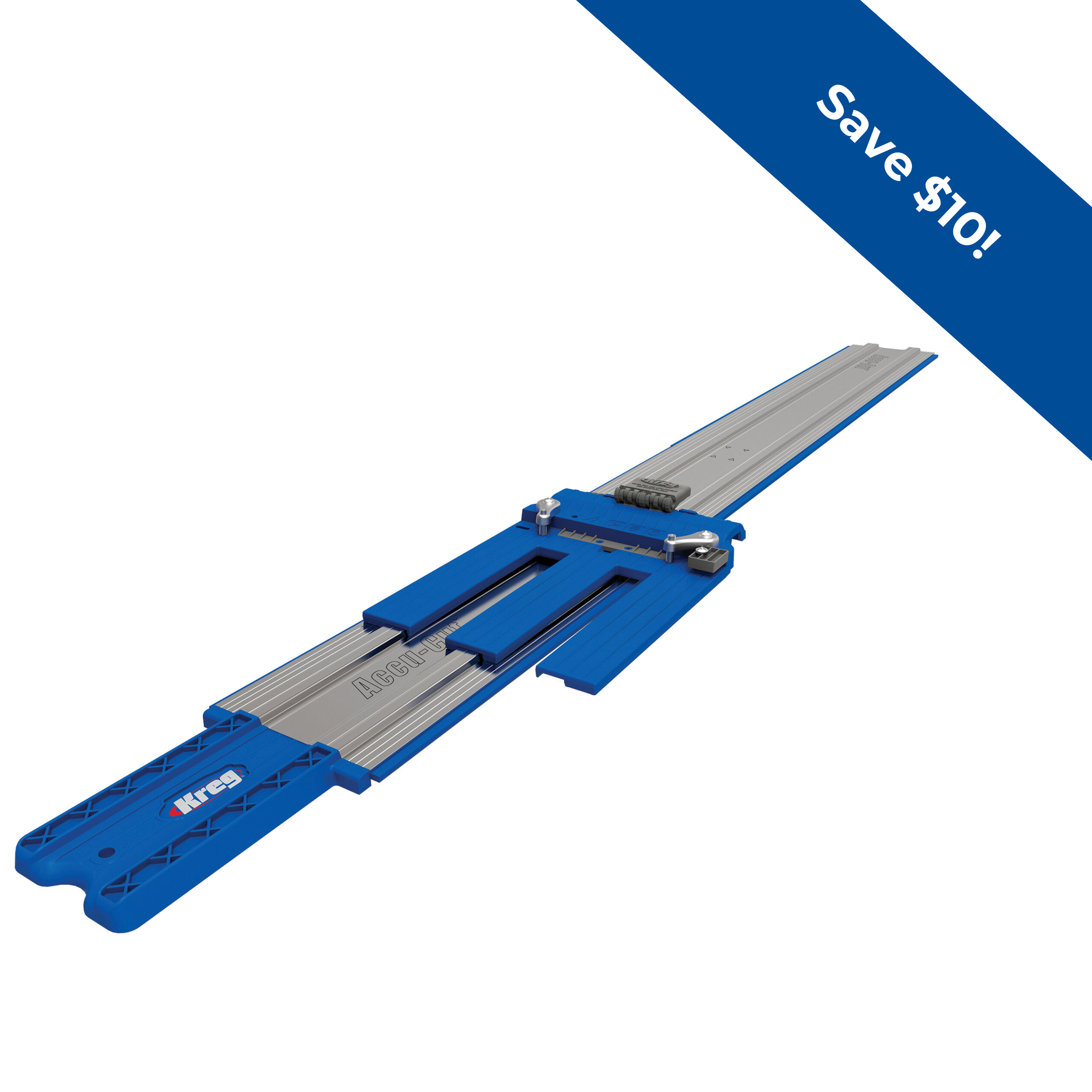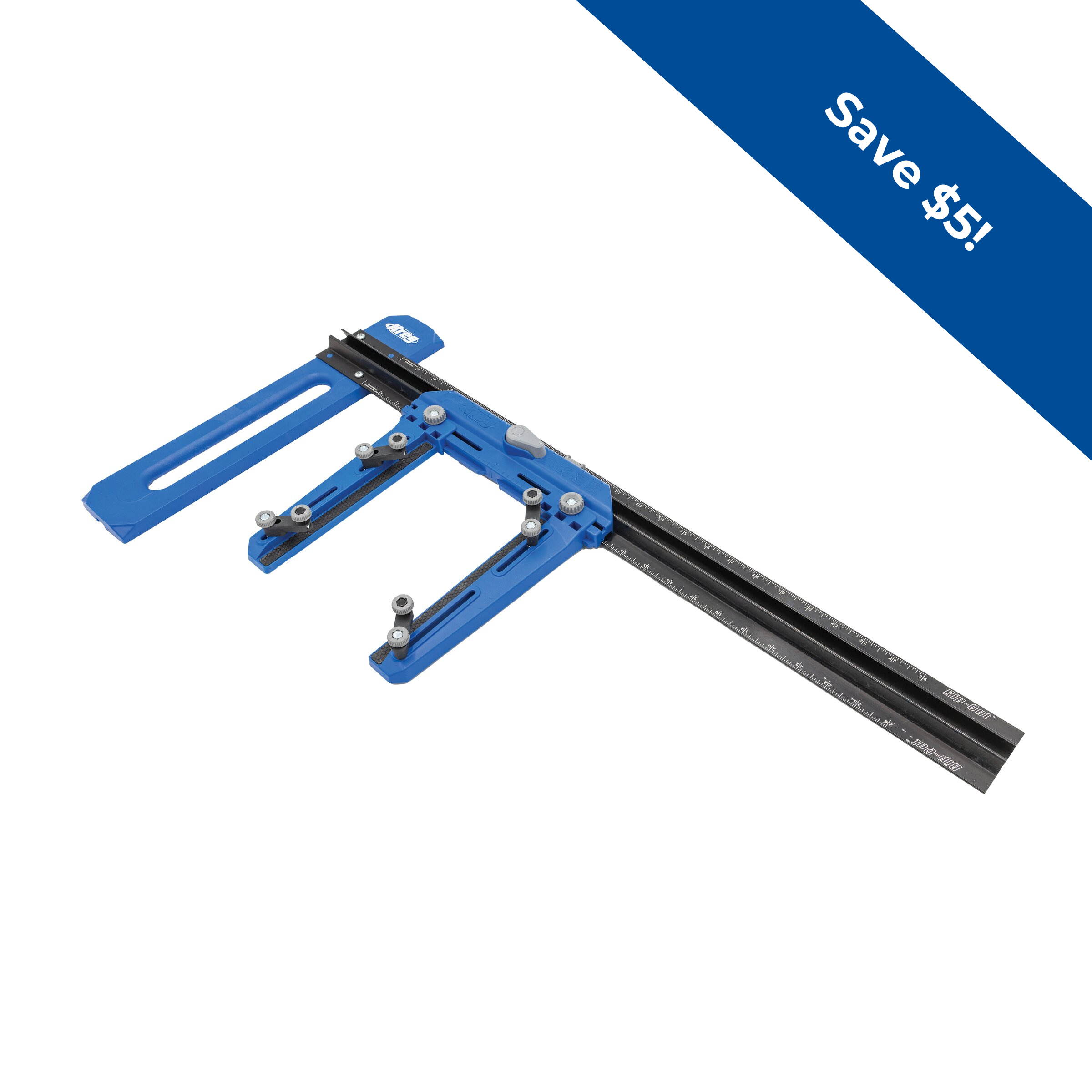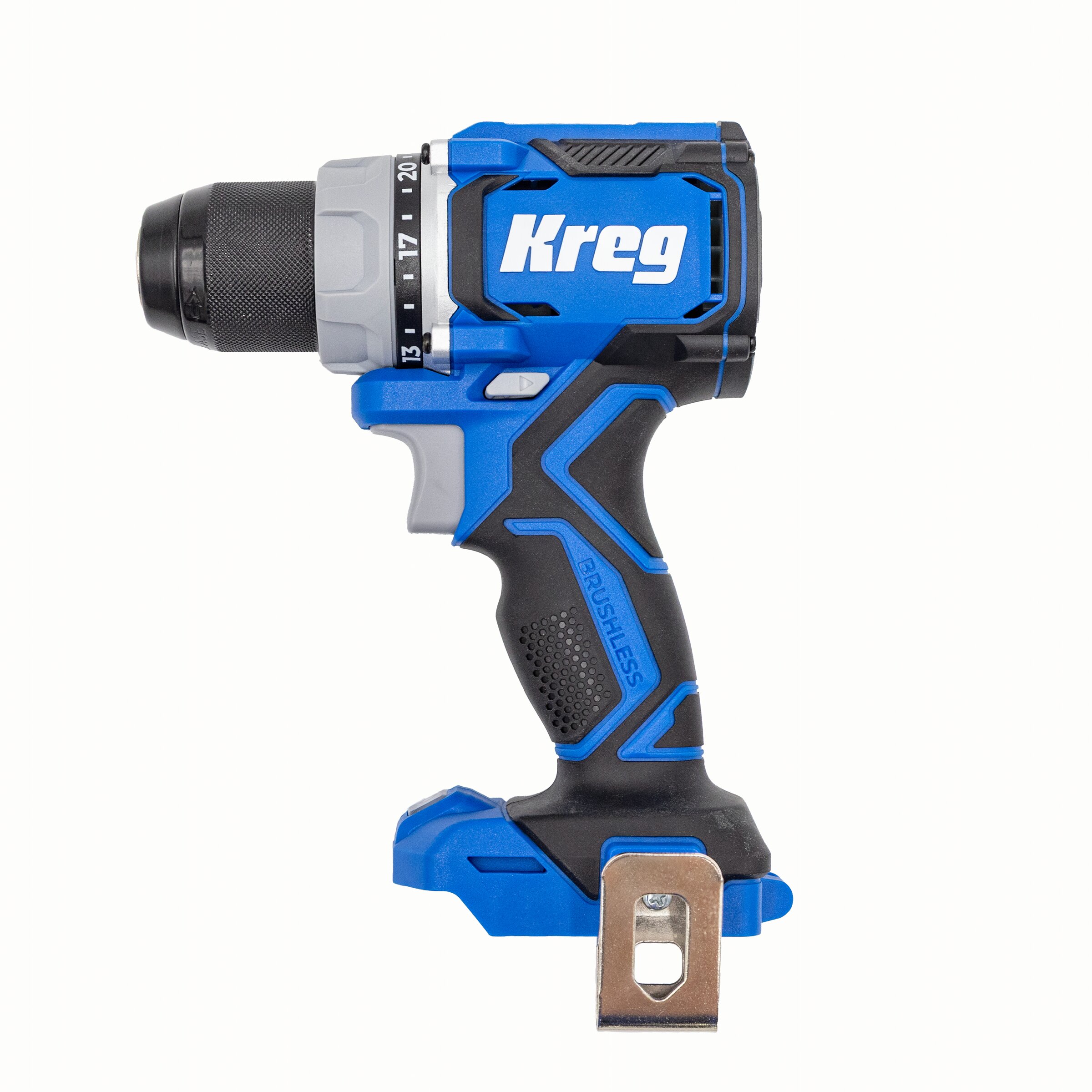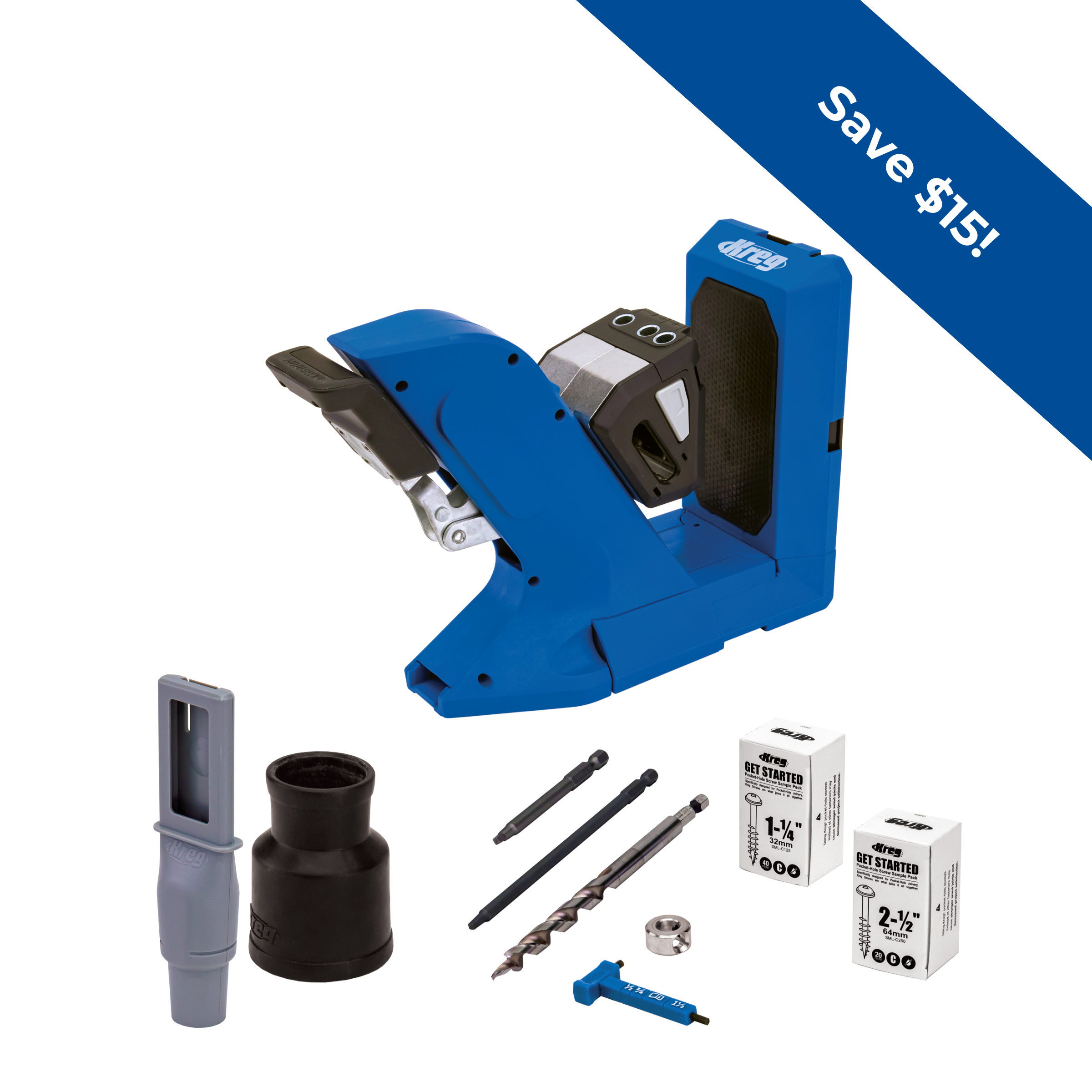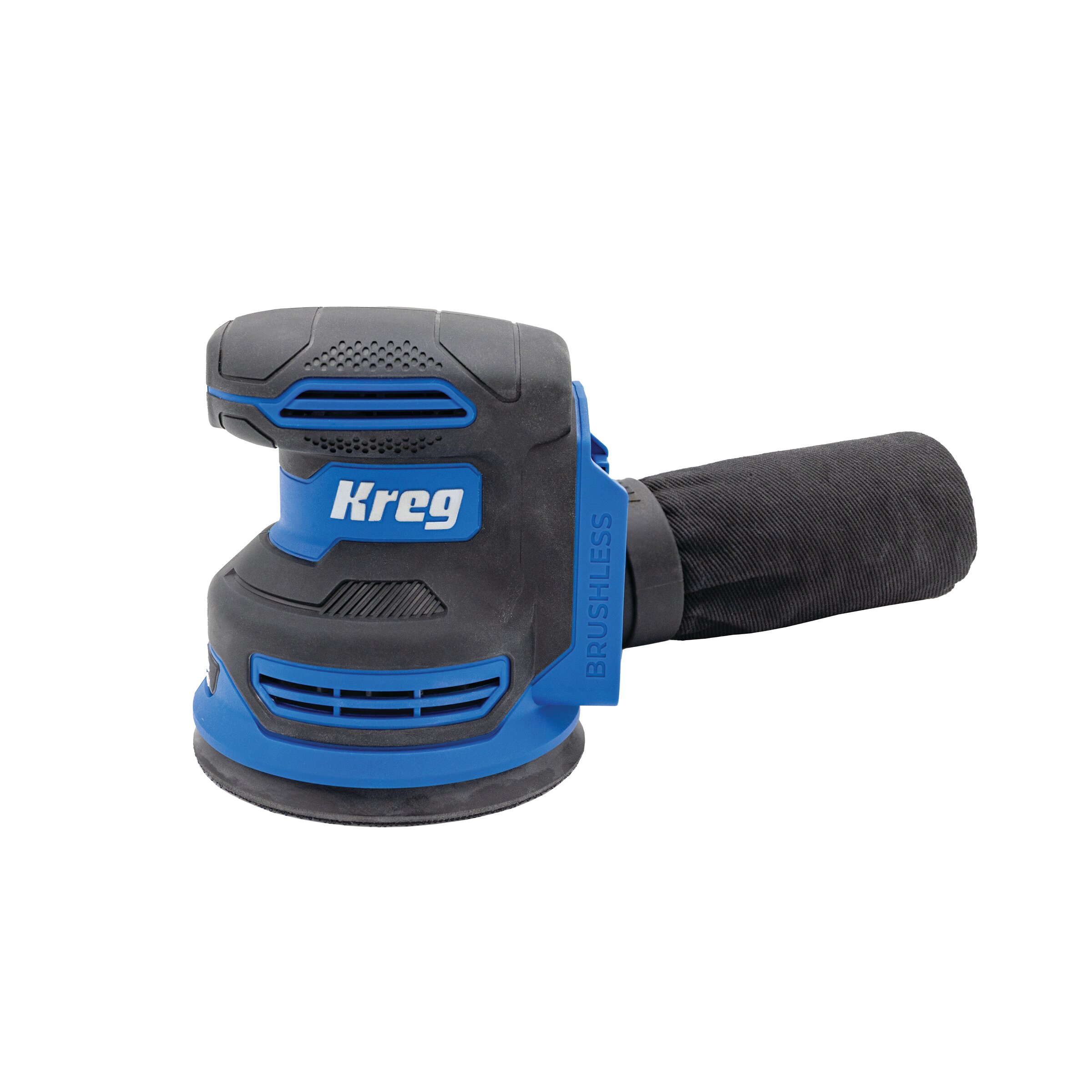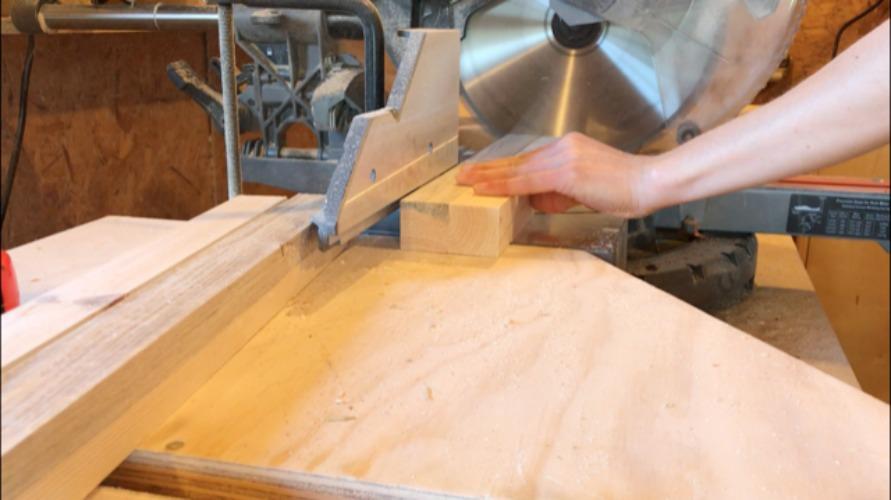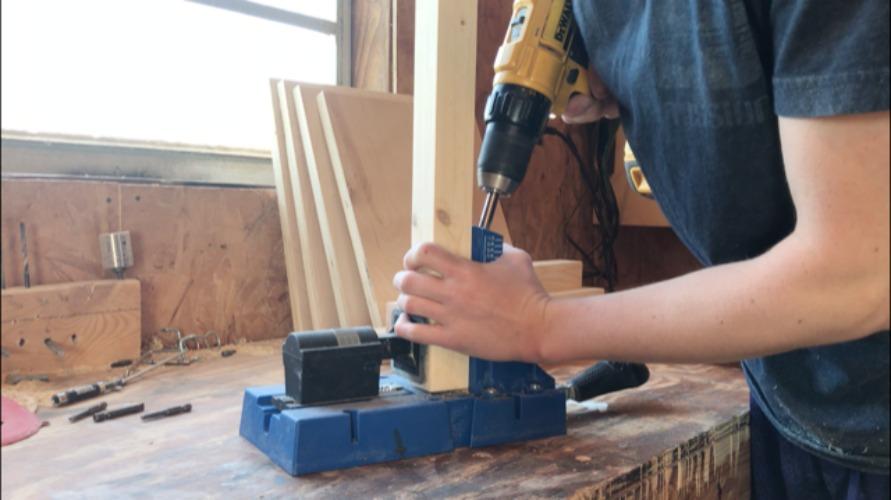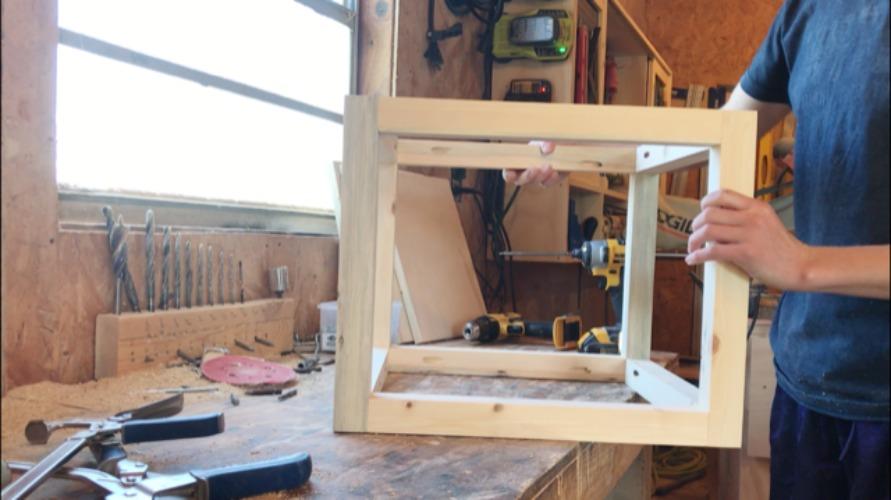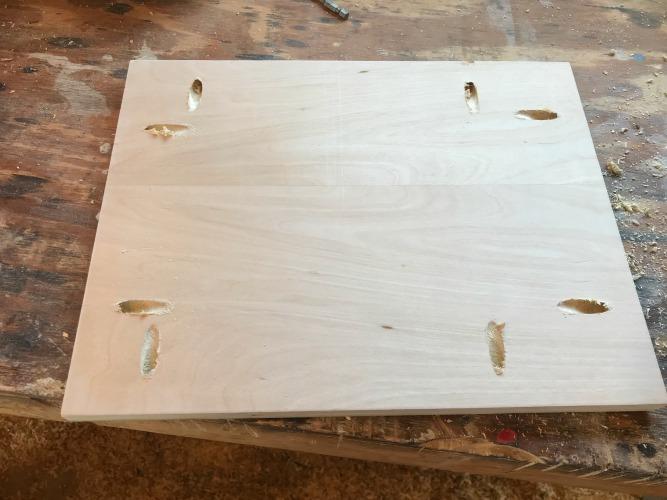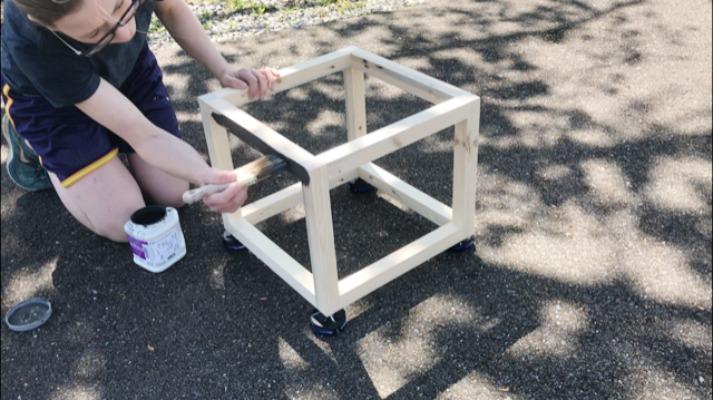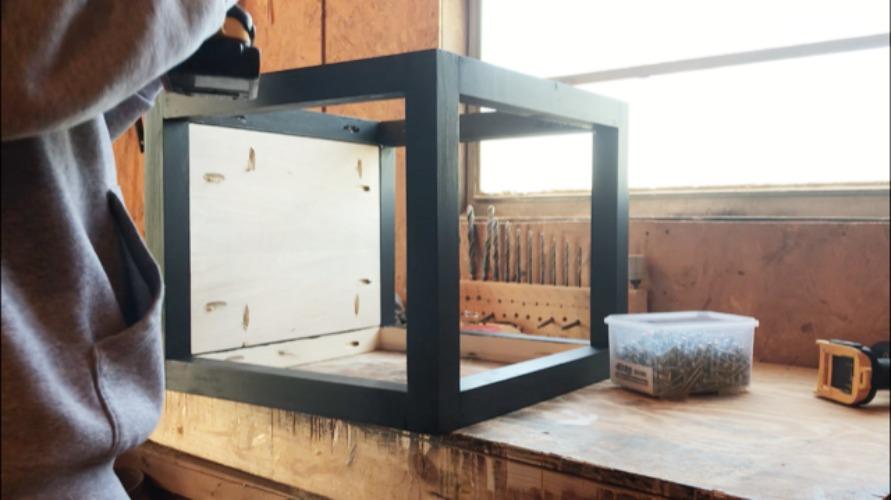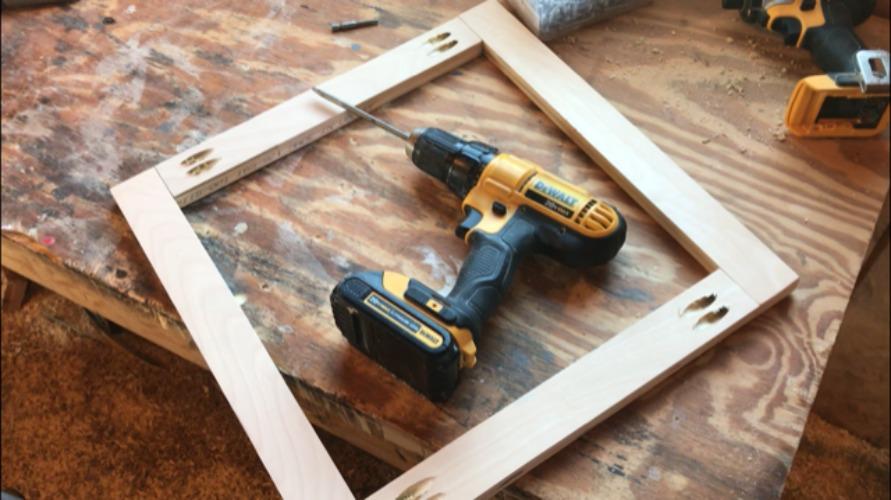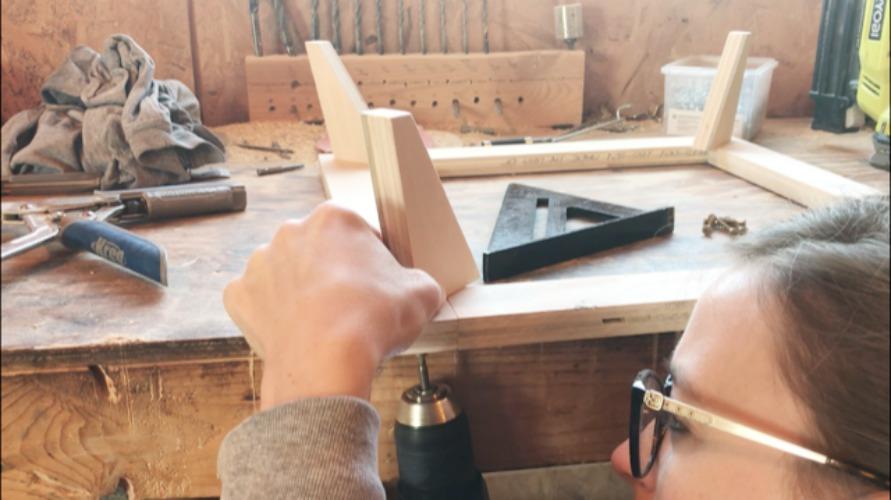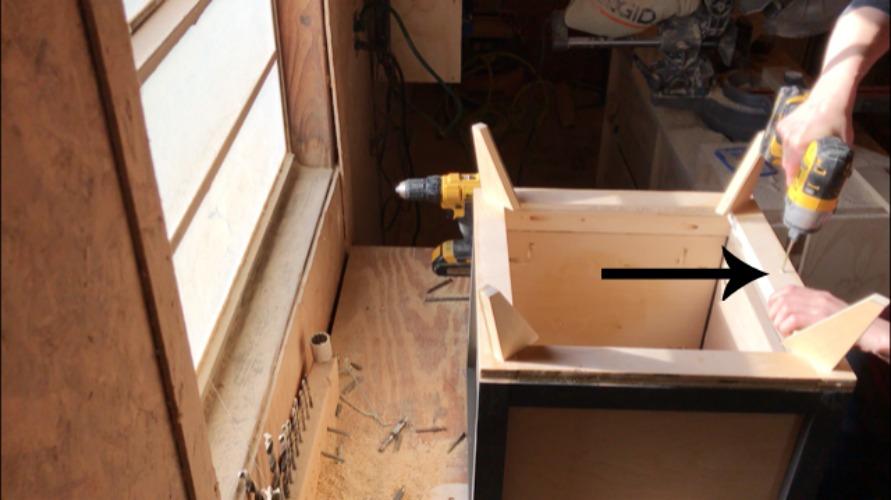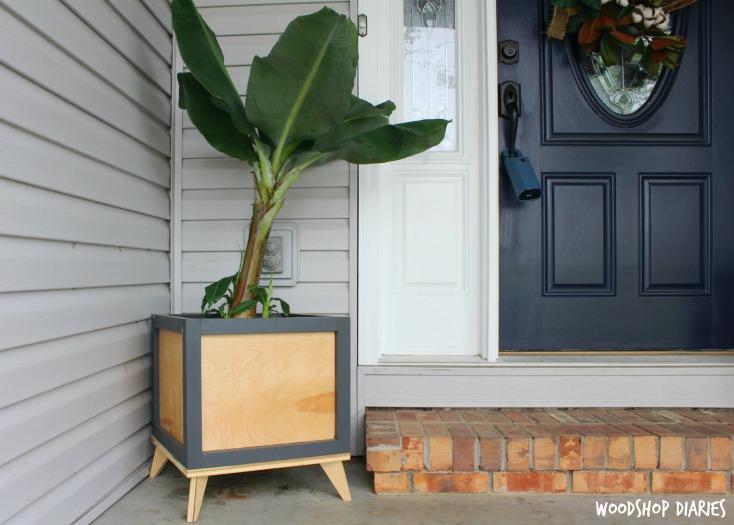DIY Modern Planter Box
By Woodshop DiariesWant to add a little retro style to your home both inside and out? These easy to build retro modern planter boxes will hold your favorite plants with tons of style AND are easily modified to make in any size you want! Use on your front porch or even indoors to bring some modern flare to your home!
Directions
-
Cut Frame Pieces
First, cut 2x2 frame pieces to size on a miter saw according to the cut list. If a different sized box is desired, this plan is really easy to modify by adjusting the lengths of these 2x2s. You will have 4 pieces that are 3” longer than the height of the panel you want in the planter box (these are your corner posts) and you will have 8 pieces the same length as the width you want your panels to be.
-
Drill Pocket Holes in Frame Pieces
Using a Kreg Pocket Hole Jig, drill one 1 ½” pocket hole into each end of the 8 frame pieces (not the corner posts).
-
Assemble the Frame
Assemble the frame of the planter box using 2 ½” pocket hole screws like shown. Attach the 8 frame pieces between the 4 corner pieces to make a box.
-
Cut Box Panels
Cut ¾” plywood panels according to the cut list to fit inside the openings in the frame from step 3. You can use a Kreg Rip Cut, Accucut or table saw for this.
-
Drill Pocket Holes in Box Panel
Drill ¾” pocket hole in the plywood panel pieces like shown.
-
Finsh Frame and Panels
If you want the two tone look like in these pictures, it’s easiest to finish the pieces separately before putting it all together.
-
Add Panels to Frame
Attach panels into the box frame using 1 ¼” pocket hole screws like shown.
-
Assemble Base Frame
Using 1x3s or scrap plywood ripped to 2 ½” wide, cut and assemble a frame for the base of the box like shown using ¾” pocket holes and 1 ¼” pocket hole screws. The base should be the same size as the bottom of the box. Follow the cut list.
-
Add Legs to Base
Cut a taper in the end of a 1x3 or scrap plywood ripped to 2 ½” wide to make the legs, then cut a 15 degree angle off the end. Measure how long you want your legs and cut another 15 degree cut parallel to the other so the legs will tilt out for a retro look. You can make these as long or short as you wish. Mine were roughly 6” long. Then screw in place in each corner like shown.
-
Add Bottom Slats
To allow for water to flow out from under the box, place two slats (scraps or 1x3s) across the bottom base inside the planter box to hold the plant. Then, place your plant in place and build yourself another one :) If desired, you could use another piece of plywood for the bottom, but it will not allow the water to drain as well as slats will.
-
Attach Base to Box
Screw the base onto the bottom of the planter box using 2" wood screws like shown.
-
Set Plants in Box
Simply place your plants into the box. Unless you decide to use a plywood bottom, you will need to leave your plants in their pot. If you need to adjust the height, simply stack some scrap wood onto your bottom slats until your plant is the height you want. Be sure to check out the YouTube video of this build and grab some more details over on the blog--links in the extras tab.



